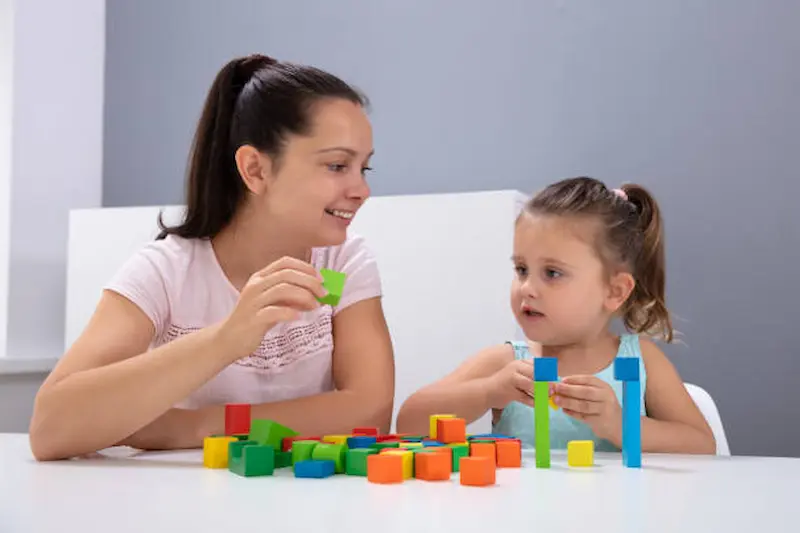Parenting tips for your teenage daughter involve guidance and strategies to navigate the challenges of adolescence. It includes fostering open communication, creating a supportive environment, and setting clear boundaries that balance independence and responsibility. Understanding her emotions, being a positive role model, and staying actively involved in her life are integral. The goal is to promote a healthy parent-daughter relationship, helping her build resilience, make informed decisions, and navigate the complexities of adolescence with confidence and a sense of security.
In this blog, discover essential parenting tips for your teenage daughter, emphasizing open communication, setting boundaries with care, and fostering a supportive environment. These insights aim to strengthen your relationship, empower her decision-making, and guide you through the unique challenges of parenting during the adolescent years.
Table of contents
- Understanding Adolescence
- Building a Strong Parent-Teen Relationship
- Emotional Well-being
- Education and Academic Success
- Healthy Friendships
- Technology and Social Media
- Dating and Relationships
- Emotional Support
- Sex Education
- Independence and Responsibilities
- Encouraging Hobbies and Interests
- Setting Future Goals
- Conclusion
- Frequently Asked Questions ( FAQs )
Understanding Adolescence

- Adolescence, typically spanning ages 10 to 19, marks a pivotal phase bridging childhood and adulthood. It is characterized by physical, cognitive, and emotional transformations, including aspects of child cognitive development, as individuals grapple with self-discovery and societal expectations.
- Psychological Changes in Teenage Girls during adolescence are profound. Girls navigate identity formation, emotional resilience, and interpersonal dynamics, influencing their sense of self and relationships.
- The Impact of Hormones on adolescents is significant. Hormonal fluctuations during puberty contribute to mood swings, body image concerns, and overall well-being, affecting both mental and emotional states.
- Peer Pressure becomes a potent force, influencing values and identity development. Adolescents, seeking social acceptance, navigate external influences that shape their perceptions and decisions. Understanding and addressing peer pressure are critical for fostering healthy identity development in this transformative period.
Building a Strong Parent-Teen Relationship

A. Communication Is Key
- Open and Honest Dialogues: Fostering an environment of open communication encourages teens to share their thoughts and concerns without fear of judgement. Honest conversations build trust and strengthen the parent-teen bond.
- Active Listening: Actively listening to a teen’s perspective demonstrates respect and understanding. It involves giving full attention, acknowledging emotions, and responding thoughtfully, fostering a sense of validation and connection.
B. Trust and Respect
- Setting Boundaries: Establishing clear and reasonable boundaries is essential for teens to feel secure. Negotiating limits collaboratively promotes a sense of autonomy within a structured framework.
- Balancing Independence: Encouraging independence while maintaining parental guidance, and incorporating effective parenting skills, helps teens develop decision-making skills. Striking this balance cultivates trust and respect, laying the foundation for a strong and healthy parent-teen relationship. Employing parenting skills such as active listening, open communication, and empathy enhances the effectiveness of guidance.
Emotional Well-being

A. Navigating Mood Swings:
Adolescents often experience mood swings due to hormonal changes. Encouraging open communication allows them to express emotions, while teaching coping mechanisms helps them navigate these fluctuations with resilience.
B. Dealing with Stress and Anxiety:
Adolescence brings new challenges, contributing to stress and anxiety. Providing tools for stress management, including stress management for kids, such as mindfulness and time management skills, equips teens to handle pressure and fosters emotional well-being.
C. Promoting Self-Esteem and Confidence:
Building self-esteem is crucial during this transformative period. Encouraging personal growth, acknowledging achievements, and fostering a positive self-image contribute to cultivating lasting confidence, laying the groundwork for a resilient emotional well-being in adolescents.
Education and Academic Success

A. Supporting Educational Goals:
Parental involvement in academic pursuits significantly impacts a teenager’s success. Understanding and actively supporting their educational goals fosters motivation, setting the stage for a positive learning experience.
B. Handling Homework and Study Habits:
Guiding teens in developing effective study habits and time management skills, including encouraging activities like reading for kids, enhances their academic performance.
Creating a conducive study environment and offering assistance when needed contributes to a balanced approach to homework, reducing stress and promoting a healthy attitude towards learning.
C. Encouraging Extracurricular Activities:
Involvement in extracurricular activities complements academic growth. Encouraging teens to explore diverse interests, including participation in Extracurricular Activities, not only enriches their experiences but also promotes well-rounded development. Such activities nurture skills beyond the classroom, fostering a holistic approach to education.
Healthy Friendships

Encouraging your teenager to cultivate healthy friendships is crucial for their social and emotional well-being. Emphasize qualities like trust, respect, and shared values in relationships. Discuss effective communication, boundaries, and the importance of choosing friends who uplift and support each other. Being involved and aware of their social circle allows you to guide them in forming connections that contribute positively to their growth, fostering a foundation for lifelong, meaningful relationships.
Technology and Social Media
Navigating the digital landscape is vital for your teenager’s well-being. Encourage responsible technology use by setting guidelines for screen time, discussing online safety, and fostering awareness of the impact of social media.
Actively engage in conversations about cyberbullying, privacy, and the potential effects on mental health. By promoting a healthy relationship with technology, you empower your teen to harness its benefits while minimizing potential pitfalls, ensuring a balanced and positive digital presence.
Dating and Relationships

Navigating the realm of dating and relationships requires communication, respect, and self-awareness. Establishing clear boundaries and open dialogue is essential for a healthy partnership. Emphasize mutual understanding and shared values, fostering a strong foundation. Prioritize both individual growth and shared experiences, allowing the relationship to evolve positively. Remember that effective communication and emotional support are key elements that contribute to the success and longevity of meaningful connections.
Emotional Support
Emotional support is crucial for mental well-being, and seeking parenting advice can be beneficial in fostering a supportive environment. Surrounding yourself with a network of friends and family who offer parenting advice can positively impact mental health. Expressing emotions openly and seeking understanding fosters resilience. Activities like mindfulness, therapy, and self-care, along with valuable parenting advice, can enhance emotional stability.
Acknowledging and addressing emotions constructively promotes a healthier mindset, reinforcing the importance of emotional support in maintaining a balanced and fulfilling life for both parents and children.
Sex Education
Comprehensive sex education is crucial for informed decision-making and overall well-being, incorporating elements like fun & educational activities for kids. Beyond biology, it encompasses consent, communication, and emotional aspects of relationships. Providing accurate information empowers individuals to make responsible choices, fostering a healthy approach to sexuality. Open discussions reduce stigma and create a supportive environment, ensuring everyone has the knowledge and confidence to navigate their sexual health with respect for themselves and their partners. Including fun & educational activities for kids can make this crucial topic more accessible and engaging, promoting a positive and informed perspective on sexual health.
Independence and Responsibilities

A. Teaching Life Skills:
Equipping individuals with essential life skills, including leadership skills for kids, is fundamental for fostering independence. Educate them on communication, problem-solving, and decision-making, empowering them to navigate various aspects of life confidently. Developing leadership skills for kids from an early age instills qualities such as teamwork, responsibility, and effective communication, laying the foundation for future success.
B. Chores and Household Responsibilities:
Assigning chores instills a sense of responsibility and teamwork. Participation in household tasks cultivates a strong work ethic and teaches the importance of contributing to the well-being of the family unit.
This practical experience prepares individuals for the responsibilities they’ll encounter in their personal and professional lives.
C. Financial Literacy:
Imparting financial knowledge, including financial literacy for kids, is crucial for autonomy. Educate individuals about budgeting, saving, and investing to ensure they make informed decisions, promoting financial stability and independence. Starting financial education early with a focus on financial literacy for kids lays the groundwork for responsible money management, empowering them to navigate future financial challenges with confidence.
Encouraging Hobbies and Interests

A. Nurturing Talents:
Identifying and nurturing talents is pivotal for personal growth and self-improvement. Whether artistic, athletic, or academic, fostering inherent abilities boosts self-esteem and provides a sense of purpose. Encourage exploration of various activities to uncover hidden talents, allowing individuals to develop skills that bring joy and fulfillment.
B. Exploring New Passions:
Life gains depth and richness when individuals venture into unexplored passions. Trying new hobbies stimulates creativity and broadens perspectives. Whether it’s learning a musical instrument, engaging in sports, or delving into literature, discovering new interests contributes to a well-rounded and satisfying life, fostering continuous personal development.
Setting Future Goals

Setting future goals is a transformative process that aligns actions with aspirations, contributing to both personal and career growth. Clearly defined goals provide direction, motivation, and a sense of purpose. Whether academic, professional, or personal, they serve as stepping stones towards success. Break down larger objectives into manageable tasks, fostering a structured approach. Regularly reassess and adjust goals to accommodate growth and changing priorities.
This proactive mindset not only propels individual development but also contributes to a fulfilling and purpose-driven life, laying the foundation for sustained personal and career growth.
Conclusion
Parenting tips for your teenage daughter encompass practical advice and strategies to navigate the complexities of raising an adolescent girl. These tips often focus on fostering open communication, setting appropriate boundaries, and creating a supportive environment that encourages independence while maintaining guidance.Parenting tips for your teenage daughter offer numerous benefits. They foster stronger communication, building trust and understanding between parents and teens. By setting clear boundaries, these tips help establish a sense of structure and responsibility, promoting healthy development.
Elevate your child’s learning journey with BrightChamps, the leading EdTech company offering a transformative blend of robotics, financial education, and coding courses.
To get your hands on more such articles, educational content, and free resources on coding for kids, robotics courses, game development, etc., check out the BrightCHAMPS Blog Page now!
Frequently Asked Questions ( FAQs )
A1. Address your daughter’s mood swings by fostering open communication, validating her emotions, and collaboratively exploring coping mechanisms.
Q2. What should I do if my daughter is experiencing bullying?
A2. Take immediate action if your daughter faces bullying by actively listening, supporting her emotionally, and involving school authorities to ensure a safe environment.
Q3. How can I talk to my daughter about dating?
A3. Initiate an open and honest conversation about dating with your daughter, creating a supportive space for her to share her feelings, concerns, and expectations.
Q4. What are some signs that my daughter may be struggling with her mental health?
A4. Monitor for signs of mental health struggles in your daughter, such as changes in behavior, withdrawal, or mood shifts, and seek professional guidance if needed.
Q5. How can I balance allowing independence with setting boundaries for my daughter?
A5. Balance allowing independence with setting boundaries by negotiating rules collaboratively, promoting responsible decision-making, and maintaining open communication to foster trust and understanding.


 We are an army of educators and passionate learners from BrightChamps family, committed to providing free learning resources to kids, parents & students.
We are an army of educators and passionate learners from BrightChamps family, committed to providing free learning resources to kids, parents & students.







